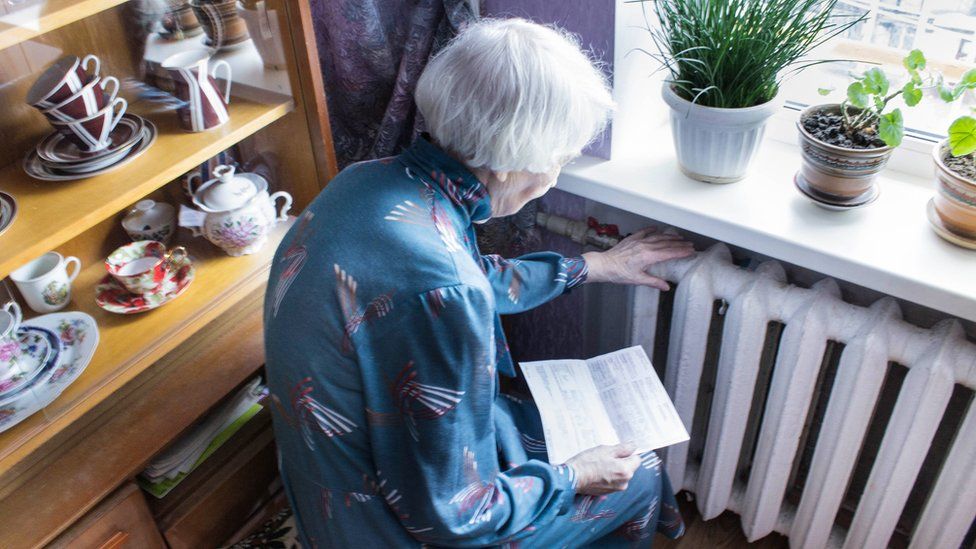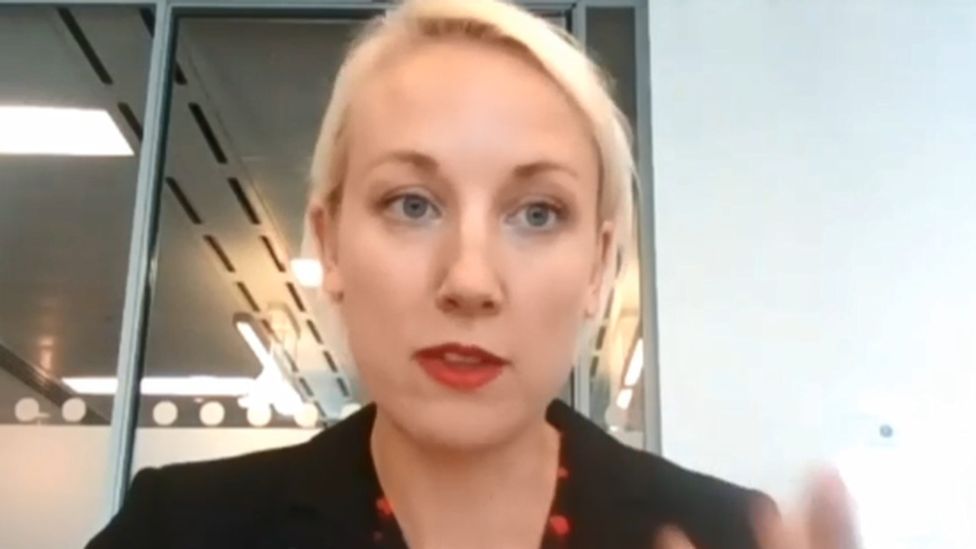
The boss of the UK’s energy regulator says “well above” hundreds of thousands of customers will have to be moved to new suppliers as more firms go bust.
Ofgem’s Jonathan Brearley spoke just hours before Green Energy, which has 250,000 customers, collapsed.
Mr Brearley told MPs that the rapid gas price rise was “something we have not seen before” and more firms would fold.
He declined to say if that meant “millions” of customers would eventually need to find a new supplier.
But Mr Brearley insisted Ofgem had plans in place to cope as the crisis developed.
Green Energy has become the latest provider to go bust following a sharp rise in wholesale gas prices.
The company, which employs 180 people, blamed “unprecedented market conditions and regulatory failings” for its collapse. It said that another energy provider would take on its 250,000 customers.
Since the sharp rise in wholesale gas prices – which firms complain they are unable to pass on to customers because of a price cap on energy bills – a number of small companies have collapsed, affecting more than one million customers.
They include People’s Energy, Utility Point, PfP Energy and MoneyPlus Energy.
Appearing before the cross-party Business Committee, Mr Brearley said: “We do expect a large number of customers to be affected. We’ve already seen hundreds of thousands of customers affected, that may well go well above that. It’s very hard for me to put a figure on it.”
If an energy firm collapses, customers are automatically switched to a tariff provided by the new supplier. This is a payment plan agreed with the regulator Ofgem, but it may well be more expensive than the deal they had with the former company which went bust.
A six-fold rise in wholesale gas prices since last year meant several domestic energy suppliers had hit financial trouble.
More would go under, Mr Brearley said, although he said commercial talks with the firms prevented him from speculating how many.
“It’s not unusual for suppliers to go out of the market,” he said. “I think what is different this time is that dramatic change in the costs that those suppliers are facing.
“We do expect more (suppliers) not to be able to face the circumstances we’re in, but it’s genuinely hard to say more than that, partly because that means predicting what may happen to the gas price.”
Some critics have blamed Ofgem’s domestic energy price cap for preventing suppliers from passing on the cost of more expensive wholesale gas.
But he said the cap was designed to protect consumers: “It is good that it is there.”

What happens if your energy supplier goes bust?

- Customers will still continue to receive gas or electricity even if the energy supplier goes bust. Ofgem will move your account to a new supplier, but it may take a few weeks. Your new supplier should then contact you to explain what is happening with your account
- While you wait to hear from your new supplier: check your current balance and – if possible – download any bills; take a photo of your meter reading
- If you pay by direct debit, there is no need to cancel it straight away, Citizens Advice says. Wait until your new account is set up before you cancel it
- If you are in credit, your money is protected and you’ll be paid back. If you were in debt to the old supplier, you’ll still have to pay the money back to your new supplier instead

The head of the trade body Energy UK was also giving evidence to MPs. Emma Pinchbeck said the sector had been fragile for a couple of years and the current gas crisis had exposed fault-lines in the market.
“I took this job a year ago. When I was hired, the chairman of Energy UK said that your biggest challenge is going to be the vulnerability of the retail market.
“And I know that for a year or more before that my team had been making the case to the regulator and the government that the sector is fragile.”

She added: “There’s a short-term crisis here, which is in some ways out of our control – it’s to do with the gas prices – but it’s been exacerbated and arguably caused by our regulatory design.”
Ms Pinchbeck said the risks to the market and security of supply was likely to continue without action by the government and regulator. “It’s terrible news for customers in the long run,” she said.
There was also a warning from Business and Energy Secretary Kwasi Kwarteng that Britain must prepare for a future of higher energy prices.
“The price has spiked considerably,” he told the committee. “You would expect normally that the price would revert to the mean.
“It’s not something that we think is going to be sustainable… We have to prepare for longer-term high prices.”
Mr Kwarteng also said there were no plans to remove the cap on domestic bills. “The price cap is here to stay,” he told MPs.


Have you been affected by this? Email: haveyoursay@bbc.co.uk.
Please include a contact number if you are willing to speak to a BBC journalist. You can also get in touch in the following ways:
- WhatsApp: +44 7756 165803
- Tweet: @BBC_HaveYourSay
- Or fill out the form below
- Please read our terms & conditions and privacy policy
If you are reading this page and can’t see the form you will need to visit the mobile version of the BBC website to submit your question or comment or you can email us at HaveYourSay@bbc.co.uk. Please include your name, age and location with any submission.
